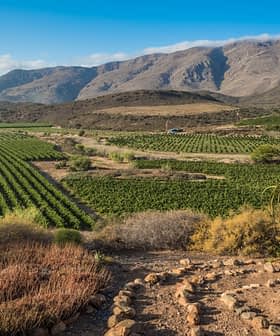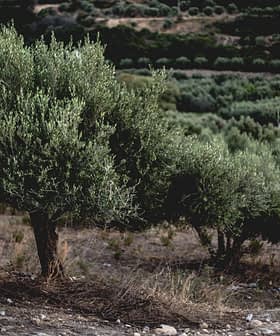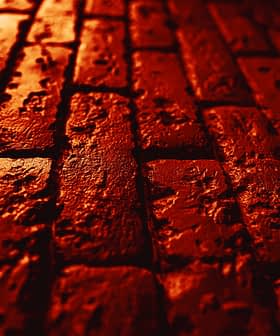Olive Waste Can Be Used to Make Effective Building Materials
Studies examining the effects of using olive waste in the manufacturing of clay bricks have revealed that they can be effective building materials.
 5K reads
5K readsWaste from the olive oil industry like olive stone ash, ground olive stones, and sludge from pomace oil extraction can be used as effective secondary raw materials in the making of clay bricks and cement paste.
The extraction of pomace oil and the process of oil refining create waste water in the form of sludge. This is sometimes used as a fertilizer in agriculture but most often it’s dumped in landfills or water bodies, or incinerated — creating a negative environmental impact.
A 2015 study titled Reusing of Oil Industry Waste as Secondary Material in Clay Bricks by the Department of Chemical, Environmental, and Materials Engineering at the University of Jaén, Spain, found that the use of sludge leftover from pomace oil extraction in the making of clay bricks had a similar compressive strength as conventional bricks, but they had better thermal conductivity.
The study also revealed that industrial oil waste products like sludge, as well as spent filtration and bleaching earth (both are used for refining oils) can be used effectively as substitutes to brick clay because their chemical composition closely resembles it.
The same research team released an article in 2016 that evaluated the use of olive stone ash as a secondary raw material for fired clay bricks. It found that adding 10 to 30 wt% (weight percent) of olive stone ash to clay had a “pronounced effect on the evolution of physical and mechanical properties of the resultant bricks fired at 900°C.” However, adding higher proportions “decreased the compressive strength and bulk density of bricks” while increasing their porosity and rate of water absorption.
Another 2016 study looked at the effects of the addition of ground olive stones on the physical and mechanical properties of clay bricks.
It analyzed the properties of bricks made with clay and ground olive stones and found that the addition of the latter reduced water absorption which can have a positive effect because it decreases the chance of crumbling while creating a good bonding effect.
The study also revealed that the addition of ground olive stones improves the thermal conductivity of the bricks but decrease their mechanical properties compared to pure clay bricks. Tests also showed that that overall compressive strength values surpassed the minimum requirements set by existing regulations.
The study concluded that clay bricks manufactured with ground olive stones “offer excellent returns on the energy used in firing”, and “are recommended as one of the most cost-effective alternative additions that can be used in fired clay brick manufacturing.”
The reuse of these olive waste products as alternative raw materials in the construction industry not only reduces industrial waste but can also offset the cost of raw materials. At the same time, this is an eco-friendly and sustainable way of recycling waste that also saves natural resources.








